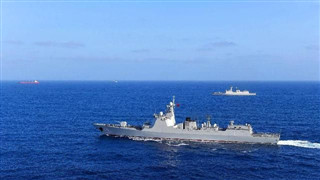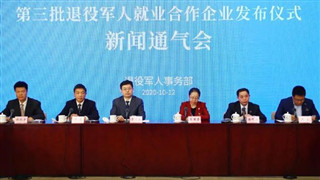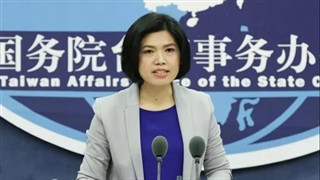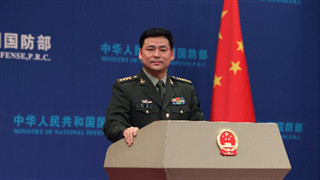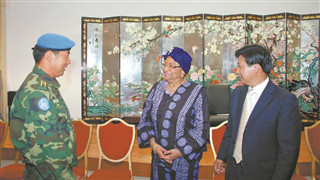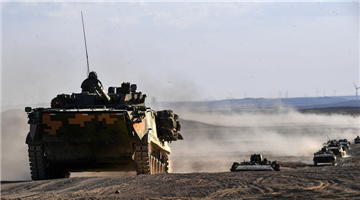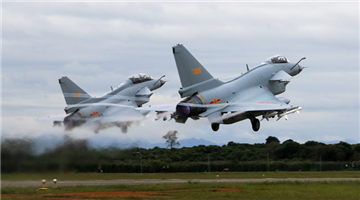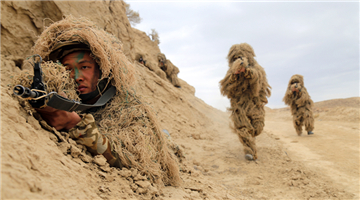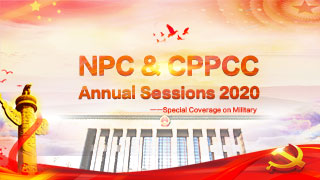
By Guo Xiaobing
Ambassador Geng Shuang, head of the Chinese delegation and deputy permanent representative of China to the United Nations, rejected the so-called "trilateral arms control negotiation" recently hyped up by the US as unfair, unreasonable and infeasible, and reaffirmed China’s solemn refusal to join the negotiation in his statement delivered at the general debate of the First Committee of the 75th session of the UN General Assembly (UNGA).
The negotiation is unreasonable because the Strategic Arms Reduction Treaty (New START) is a bilateral treaty signed between the US and Russia to digest the consequences of their wild arms race during the Cold War. There is no reason why China, which has never participated in the nuclear arms race, to join them in bearing the consequences. In retrospect, the irrational nuclear arms race between Washington and Moscow back then drove them to stock up to 70,000 nuclear weapons at one time, which put a heavy burden on their economic development. Signing the arms control treaty to reduce their nuclear arsenal is a late remedy adopted by the two parties involved while still enjoying the dividends of the Cold War. In comparison, China has always been calm and restrained in its nuclear weapon development, and its nuclear weapons are of a limited and succinct scale. How ridiculous it is for a crapulent and obese person to force someone who is consistently on diet to lose weight!
The negotiation is unfair because despite the rounds of nuclear disarmament, the US and Russia have over 90% of the world’s total nuclear weapons, leaving other nuclear-weapon states far behind. According to statistics by Stockholm International Peace Research Institute (SIPRI), the US has about 5,800 nuclear warheads, nearly 20 times that of China, which has only 300 nuclear warheads. In addition, the US also possesses advanced conventional weapons and has continuously reinforced missile defense systems, posing a serious threat to China’s limited nuclear arsenal. How unfair it is to ask China to join the so-called trilateral arms control negotiation under such circumstances!
The negotiation is infeasible because there isn’t a unified yardstick to govern the trilateral arms control talks. The basis for US-Russia negotiation is the principle of Mutual Assured Destruction (MAD). What’s the basis for a similar negotiation between China and the US? Considering that the Trump administration has given up the concept of strategic stability and ardently embraced the arms race, there is no way it would accept the principle of MAD of nuclear weapons with China, which would reduce its nuclear arsenal to China’s level. Without a basic principle, what do the three countries, with drastically different scales of nuclear arsenals, have to talk about and how? The White House, despite the fanfare of the trilateral negotiation, has never put forth any concrete plan.
Knowing fully well that such a negotiation is infeasible, what does the US have in mind then throwing out the proposal of trilateral arms control negotiation? Remarks by some American arms control experts are right to the point – the Trump administration proposed not to get China to join the arms control, but to get itself out. Washington believes that the current international arms control system, which was established immediately after the end of the Cold War when the US was in its prime, no longer fits its security interests today since its supremacy and domination are challenged. Therefore, following the “America first” principle, it wants to destroy the existing arms control system to pursue military superiority without restraint. So far, the US, resorting to all sorts of excuses, has backed out of the Iran nuclear deal, the Intermediate-Range Nuclear Forces Treaty (INF Treaty), and the Open Skies Treaty and revoked the former administration’s signature on the Arms Trade Treaty. Shaking off these restraints, it has been acting like a horse running amuck. Proposing the trilateral arms control negotiation is just another trick it plays to free itself from the treaties further.
However, China's refusal to join the unrealistic trilateral arms control negotiation doesn't mean it keeps clear of the international arms control process. Quite on the contrary, China is an active participant, builder, and staunch protector of this system. Of the five nuclear-weapon states, China is the only one that has insisted on the policy of "non-first-use" of nuclear weapons and is unconditionally committed to not using or threatening to use nuclear weapons against non-nuclear-weapon states and regions. Moreover, China endorses strategic security dialogues within the framework of the UN, Conference on Disarmament, and the five nuclear-weapon states. The American arms control circle also admits that if the goal of realizing a nuclear-weapon-free world is a mountain, the Chinese camp is closest to the peak.
Other nuclear-weapon states, especially nuclear superpowers, should fulfill their special and primary responsibilities in arms control. They should take concrete measures to slash their nuclear weapons further, give up the policy of first use of such weapons, and approach the Chinese camp, rather than make unreasonable moves by knocking up the so-called trilateral arms control negotiation.
(The author is director of the Institute of Arms Control and Security Studies at the China Institutes of Contemporary International Relations.)
Disclaimer: This article is originally published on china.com.cn and translated from Chinese into English and edited by the China Military Online. The information, ideas or opinions appearing in this article do not necessarily reflect the views of eng.chinamil.com.cn.
